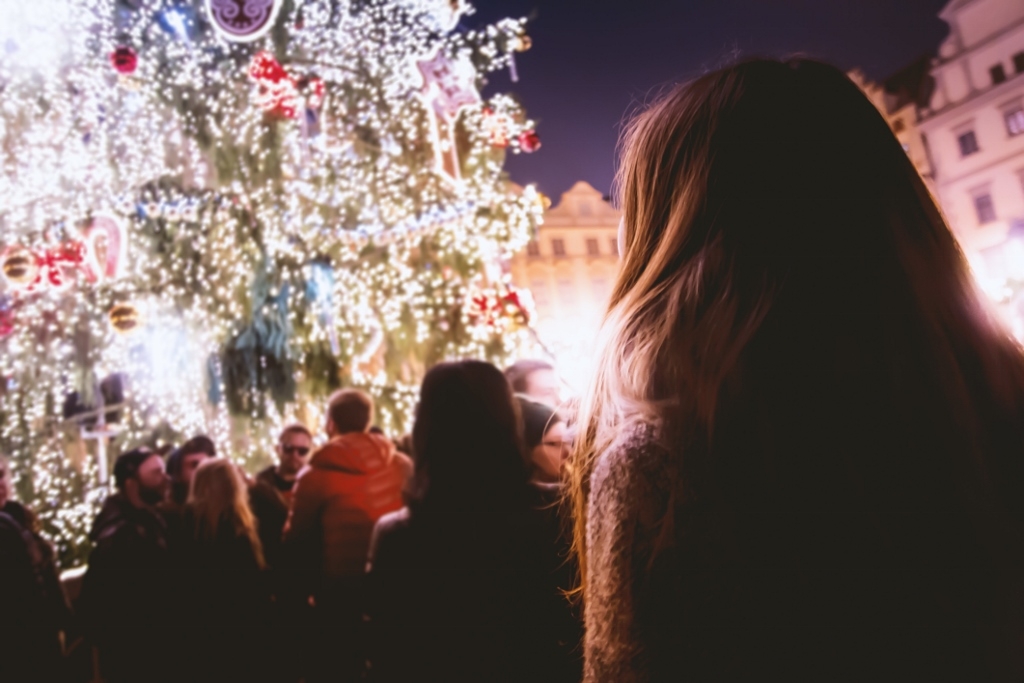Involved in a bus accident that took the lives of six people, David Gibson has been battling through PTSD for over three years. In an effort to better understand himself and to communicate with others, he turned to writing. His first book was The Other Side of Reason: A Journal on PTSD. This column continues that text.
[Soul keeper]
Where dreams and thoughts become one.
Emotions become images that dance in the darkness.
Even if hope is a flickering candle,
It still lights up the darkest corner.
An ember, fading and brightening into flame, it continues to burn.
May this hope keep your soul.
____________________________
Voltaire once said, “Poetry is the music of the soul, and, above all, of great and feeling souls.” Christmas is a time when the music of poetry takes on an entirely new significance – it brings families and friends closer to each other.
Ideally, the holidays are a time for sharing love with friends and family. For many, the holidays bring parties, sharing gifts, being around friends, family, and people who may be new to one’s circle of friends. The list of the “ideal” holiday time and the “holiday spirit” goes on and on.
People dealing with post-traumatic stress disorder (PTSD) often share a different experience. Being around people is the last thing some people want to do. Because PTSD is connected with the flightor fight response, people often avoid parties, places where they do not feel safe, or people they may not feel safe with. Some also avoid people so they won’t get into trouble by hurting anyone. People and places bring about old memories. If one is really suffering, socializing is not an option Holidays are often times of despair and depression.
Sometimes family or friends are involved in a complicated trauma history, and seeing a specific person can be jarring or unbearable. Sometimes holidays mean visiting a place associated with a trauma and reliving the experience because the only thing that’s changed about it is the date. This becomes especially complicated as the holidays are supposed to be joyful and a person with PTSD can feel alienated for not “playing along.” If you’re a survivor of trauma, know that your struggles are valid. You shouldn’t be expected to “just get over it,” and things can get better with lots of time and self-care. If you have to leave the celebration, don’t feel guilty for taking care of yourself.
I have often lamented “I’m not a chaotic person, there’s just chaos in my brain.”
What I like about this perspective is that you can stop blaming yourself and begin to look at the issues objectively as something to be fixed. This is where integration becomes very important.
It can be normal to feel a split between your past and your present. At the core of the healing journey is the idea of melding them together into a continuum so that you accept the memories and bring them into yourself rather than keep them apart as you may instinctively do after surviving something horrific and/or devastating.
It’s normal to feel fractured, fragmented and even shattered after a trauma. Given what you’ve survived and how you had to learn to cope – both during your trauma(s) and afterward – it makes sense that internally things have splintered.
What I have found to be helpful is a way to make your way toward the goal of recovery and to consider the idea of integration, how it’s been interpreted in both the past and present, and how you can incorporate it more into your work alone and also with a healing professional. It is extremely possible to achieve integration and recovery.
If you are caregivers, relatives, friends of those with PTSD, you can be realistic in your expectations about your loved one’s recovery. You can't change the terrible reality. But you can acknowledge it. You can't give soul-saving advice. But you can simply be there. Being there, being close, listening, sharing silence, and backing off when space is needed – these are sensible acts of real compassion. Easy to say, difficult to do.
Even if the holidays are difficult, remember to find those moments of joy and savor them. You can be a survivor of PTSD by having realistic expectations and facing symptoms directly. The more control you take over your symptoms, the less they will control you, and you may find the holidays can be a time for making new memories again.
After all you are picking up the puzzle pieces, figuring out where and how they fit together so that an entire new picture emerges. That new picture can be you, strong, clear, confident and free.
Where there is hope there is always a future. Wishing you a wonderful Holiday season and a New Year filled with love, peace, good health and happiness.
Until next time.

